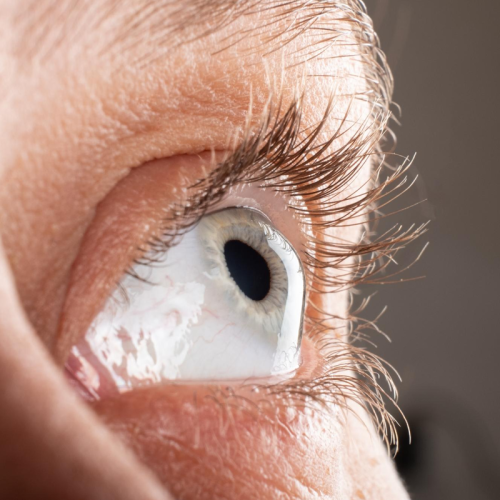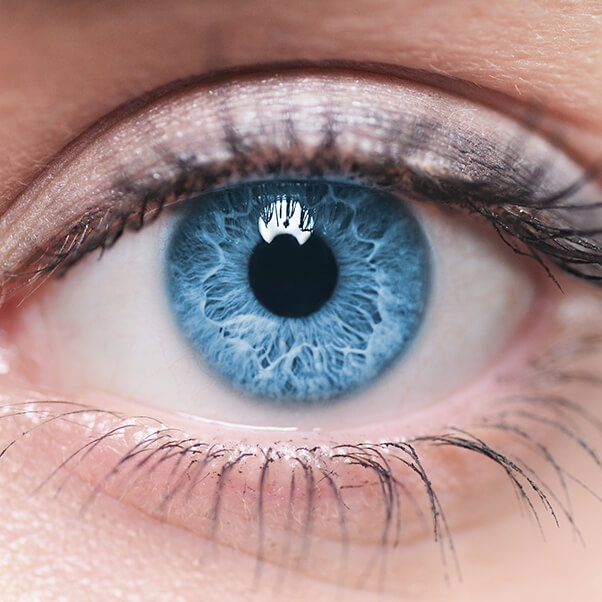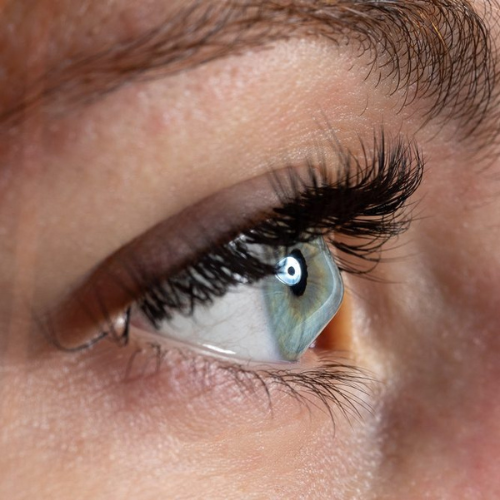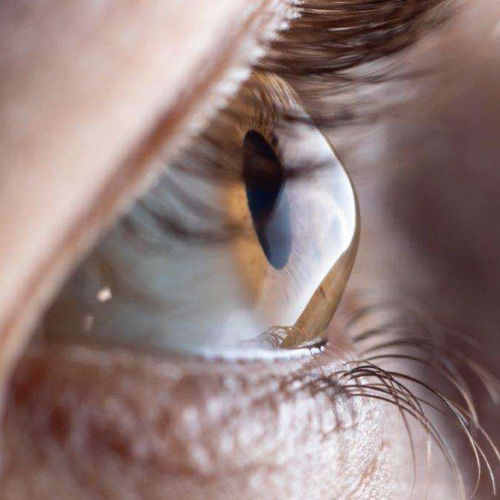
What is Cornea?
The Cornea departments across the Hi Tech eye surgery center offer cutting edge technologies at affordable cost to the patients. At Hi Tech eye surgery center , we work as a team to keep abreast of the latest in Ophthalmology and motivate each other to deliver high standards of patient care.
The cornea is the transparent front part of the eye that covers the iris, pupil, and anterior chamber. The cornea, with the anterior chamber and lens, refracts light, with the cornea accounting for approximately two-thirds of the eye’s total optical power. Various disorders affecting the cornea can lead to pain, irritation, reduced vision, and sometimes blindness.
Looking for Cornea Services and Treatment in Undri, Kondhwa, NIBM? At Hi Tech Eye Surgery Center, we are equipped to diagnose and treat a wide range of corneal conditions, ensuring the best possible outcomes for our patients.
The most common corneal disorders are the following:
Corneal abrasion – a medical condition involving the loss of the surface epithelial layer of the eye’s cornea as a result of trauma to the surface of the eye.
Corneal dystrophy – a condition in which one or more parts of the cornea lose their normal clarity due to a build up of cloudy material.
Corneal ulcer – an inflammatory or infective condition of the cornea involving disruption of its epithelial layer with involvement of the corneal stroma.
Corneal neovascularization – excessive ingrowth of blood vessels from the limbal vascular plexus into the cornea, caused by deprivation of oxygen from the air.
Fuchs’ dystrophy – cloudy morning vision.
Keratitis – inflammation of the cornea.
Keratoconus – a degenerative disease, the cornea thins and changes shape to be more like a Chemical burns or Trauma or Injuries

Treatment options for all of them are now available. They include corneal transplant, lamellar corneal surgery and stem cell transplant and therapy, where the diseased cornea is removed and replaced with a natural cornea procured from a donor eye (eye donated after death). Artificial cornea is also available now, for cases where multiple corneal transplants have failed.
Other than corneal surgery for corneal diseases, we conduct refractive surgery for reduction of refractive error (glass number) and phakic intraocular lens implant surgery to correct myopia.
The latest techniques in Corneal Transplantation like Lamellar Keratoplasty (Deep Anterior Lamellar Keratoplasty and Endothelial Keratoplasty) are performed with good quality tissues. In patients not suitable for these procedures penetrating keratoplasty can be done. Instruments available Keratometer, Corneal topographer, Specular microscope.

What is Keratoconus?
The earliest signs of keratoconus are usually blurred vision and frequent changes in eye glass prescription, or vision that cannot be corrected with glasses. Symptoms of keratoconus generally begin in late teenage years or early twenties, but can start at any time.
Keratoconus Symptoms
- Increased light sensitivity
- Difficultly driving at night
- A halo around lights and ghosting (especially at night)
- Eye strain
- Headaches and general eye pain
Other symptoms include
Keratoconus, especially in the early stages can be difficult to diagnose. Keratoconus requires a diagnosis from a competent keratoconus specialist trained in recognizing the symptoms , also observing signs of keratoconus through direct measurement as well as inspection of the cornea at a microscopic level using a slit lamp.
Keratoconus can usually be diagnosed with a slit-lamp examination. The classic signs of keratoconus that the doctor will see when examining your eyes include:
Corneal thinning, Fleischer’s ring (an iron colored ring surrounding the cone), Vogt’s striae (stress lines caused by corneal thinning) and Apical scarring (scarring at the apex of the cone).
Investigations
Corneal topography and Pentacam – a computerized instrument that make three-dimensional “maps” of the cornea. A typical corneal topography map looks like this:
Corneal topography and Pentacam has facilitated the diagnosis of keratoconus, helping establish the diagnosis earlier, follow progression more accurately and differentiate keratoconus from other conditions.
ASOCT – This advanced investigation helps in knowing corneal thickness at different locations and to also see epithelial thickness profile which can be earliest indicator of keratoconus.
Keratoconus Treatment
The treatment involves 2 aspects –
- To enhance failing vision (spectacles and CL) and
- To stop progression of keratoconus (Cross linking treatments).
To Enhance Vision
Spectacles – Small amount of astigmatism can be corrected by spectacle in early stages.
Contact Lenses for Keratoconus – Keratoconus is managed by many different contact lens designs. No one design is best for every type of keratoconus. Since each lens design has its own unique characteristics, the lens fitter carefully evaluates the needs of the individual situation to find the lens that offers the best combination of visual acuity, comfort and corneal health.

Corneal Cross-linking - To Stop Progression of Keratoconus
Corneal Collagen Cross linking (CXL) is currently the only treatment to stop progression of keratoconus and to avoid corneal transplant. CXL works by increasing collagen crosslink’s which are the natural “anchors” within the cornea. These anchors are responsible for preventing the cornea from bulging out and becoming steep and irregular. CXL has been done for over a decade with good success and has changed the way keratoconus is managed today. We are one of the pioneers of CXL treatments and offer all the techniques of CXL including accelerated cross linking and various combinations of CXL with vision enhancing techniques such as Topo PRK and INTACS.
Intacs Surgery for Keratoconus
Intacs is the trademark name for micro-thin prescription inserts which were previously used as a form of refractive surgery in the treatment of low levels of myopia or near sightedness, but has recently received FDA approval for keratoconus. Intacs are thin plastic, semi-circular rings inserted into the mid layer of the cornea. When inserted in the keratoconus cornea they flatten the cornea, changing the shape and location of the cone. The placement of Intacs remodels and reinforces the cornea, eliminating some or all of the irregularities caused by keratoconus in order to provide improved vision. This can improve uncorrected vision, however, depending on the severity of the KC, glasses or contact lenses may still be needed for functional vision.
Corneal Transplants
Although only 15-20% of those with keratoconus ultimately require corneal transplant surgery, for those who do, it is a crucial and sometimes frightening decision. However, those who know what to expect before, during and after surgery are better prepared and feel more in control of their health care. In keratoconus, a corneal transplant is warranted when the cornea becomes dangerously thin or when sufficient visual acuity to meet the individual’s needs can no longer be achieved by contact lenses due to steepening of the cornea, scaring or lens intolerance. Lens intolerance occurs when the steepened, irregular cornea can no longer be fitted with a contact lens, or the patient cannot tolerate the lens.
Frequently Asked Questions
Cornea services encompass a range of medical and surgical procedures focused on diagnosing, treating, and managing conditions affecting the cornea and the surrounding tissues of the eye.
Common conditions treated by cornea services include:
- Corneal abrasions
- Keratitis (inflammation of the cornea)
- Corneal infections
- Corneal dystrophies
- Corneal ulcers
- Keratoconus
- Corneal degenerations
Treatment options for corneal conditions may include:
- Medications (such as antibiotics, antivirals, or anti-inflammatory drugs)
- Eye drops
- Contact lenses (for certain conditions like keratoconus)
- Corneal transplantation (such as penetrating keratoplasty or endothelial keratoplasty)
- Laser procedures (like phototherapeutic keratectomy or laser-assisted corneal surgeries)
A corneal transplant, also known as keratoplasty, is a surgical procedure to replace a damaged or diseased cornea with a healthy donor cornea. It may be necessary for conditions such as advanced keratoconus, corneal scarring, or corneal endothelial dysfunction.
Yes, a corneal transplant is considered a major surgery. However, advancements in surgical techniques, such as lamellar corneal transplantation, have made the procedure more refined and have reduced recovery times.
The success rate of corneal transplantation is generally high, with most patients experiencing improved vision and relief from symptoms. However, success rates can vary depending on factors such as the underlying condition, the type of transplant performed, and the patient's overall eye health.
Your ophthalmologist will provide you with specific pre-operative instructions, which may include discontinuing certain medications, fasting before surgery, and arranging for transportation home after the procedure. It's essential to follow these instructions closely to ensure the best possible outcome.

Hi Tech Eye Surgery Center
Eye Services – That You Can Trust
Cataract and Premium Lens Implant
Children’s Eye Check-up

Glaucoma Screening
Comprehensive Eye Examination
WHY CHOOSE Hi Tech Eye Surgery Center For Cornea Transplant Surgery in Pune
The hospital has trained and experienced optometrists, nursing staff and machine operators to assist the doctors. The non-medical staff members are also well versed in hospital and patient management.
Medical ailments often cause stress and anxiety. At Hi Tech Eye Surgery Center we work to create a friendly environment which can help our patients to relax and communicate their concerns freely.
MEL-90 the world’s fastest Lasik machine, YAG laser for opacities and iridectomies, Green Laser Visulas from Carl Zeiss and several other sophisticated machines are a part of the Hi Tech Eye Surgery Center.
We are located on Parmar Pawan, Kondhwa Road, Opposite ICICI Bank, Fakhri Hills, Kondhwa,, one of the central roads in Pune. By-lanes in the vicinity ensure sufficient parking space.
An opticals facility and a medical shop are housed in the same premises for the convenience of our patients. These facilities enable our patients to get a complete solution.
Contact Hi Tech Eye Surgery Center
Get in touch with Hi Tech Eye Surgery Center for expert eye care and advanced laser treatments.
We are committed to delivering top-notch care to our patients, and we value your feedback as it plays a crucial role in enhancing our services and ensuring continuous improvement.
Request a Consultation
Contact Form
Experience the Best Eye Care at Hi Tech Eye Surgery Center
Book your appointment today and see the difference. if you have any questions call us on 020 2683 5088 / +917420817072 / +918448448946

